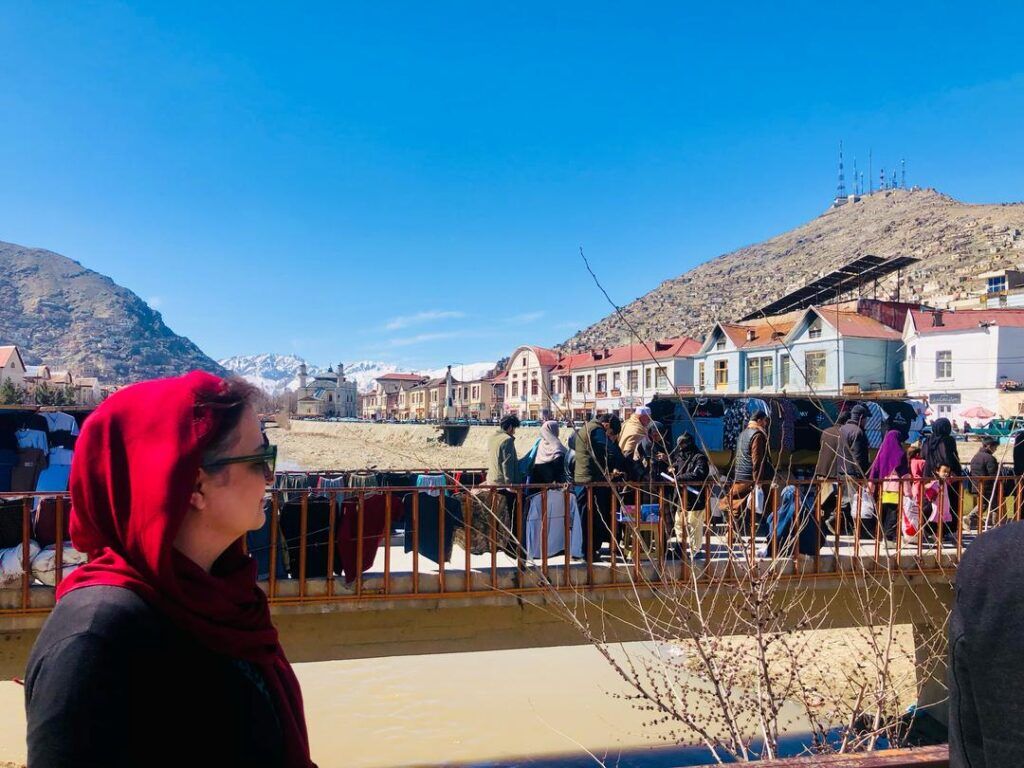
The Enduring Appeal of the Shaman
May 17, 2025
Trump’s SCOTUS Judges Humiliate Him
May 17, 2025As U.S. funding for global reproductive healthcare dries up, Afghan activist Seema Ghani risks everything to expose the devastating impact on women losing vital access to care.
This piece is published in partnership with The Fuller Project, a nonprofit newsroom dedicated to the coverage of women’s issues around the world. Sign up for The Fuller Project’s newsletter.
I’ve been writing for decades about America’s on-again-off-again support for the reproductive healthcare of women around the world, focusing on the Republican presidents who have slashed funding and jeopardized women’s lives. During that time, I’ve interviewed many women, primarily in poor countries, who have struggled to obtain care for themselves or others. Their stories are often scary, heartbreaking and, quite literally, painful.
When I spoke by phone to Seema Ghani in February, there was something more. Unlike many women I had reached out to this year in countries that have relied on the United States for financial support, Ghani was not afraid to speak to me—even though her homeland, Afghanistan, is the world’s most oppressive for women.
Ghani is vice chair of the board of the Afghan Family Guidance Association (AFGA), a non-governmental organization that provides women with sexual and reproductive health services, including pre- and postnatal care, counseling, contraception and post-abortion care. (Abortion itself is illegal except to save a woman’s life.)
That’s just the latest in a long list of roles for the college-educated human rights activist, who fled Afghanistan during the civil war in the 1990s only to return in 2002 to help rebuild it. During the two decades that the U.S. military had a presence there, she held two high-level government jobs, led a drive to reform the Chamber of Commerce (then joined its board), founded charity organizations to help women and children, worked with Afghan refugees, headed an anti-corruption committee and chaired a nonprofit that encouraged entrepreneurship.
She also raised 36 war orphans (as many as 21 at one time) without the help of a partner.
Ghani—like all women in Taliban-ruled Afghanistan—is no longer permitted to head an organization, either within the government or without. She has shifted to conducting research on the impact of the Taliban on women’s healthcare and to doing volunteer work to enhance reproductive health services for women in a country that once again restricts their movement and their options. She splits her time between Kabul and London.
To call her a powerhouse would be an understatement. So perhaps I shouldn’t have been surprised when Ghani opened up to me about the consequences of President Donald Trump’s January order freezing almost all United States foreign assistance, including the money that helped sustain AFGA. Others I contacted were worried that speaking out about the freeze would permanently endanger the aid their organizations hoped the U.S. would eventually restore.
Not Ghani.
When I asked her about the ramifications of Trump’s directive, she did not mince words. Because of the freeze, Ghani said, “We’re stopping the standard, ordinary reproductive health to women—and we’re talking about women that did not have access to any health centers in their life before.”
I quoted Ghani briefly in a data-oriented story I penned last month about the global impact of Trump’s freeze on women’s family-planning and reproductive health. But there was much more to our initial conversation and follow-up emails.
Among the things she wanted me to know, and repeated many times for emphasis, were that U.S. money paid for much more than the $15 million in condoms that at least one member of Congress had highlighted, and that without it, women’s reproductive healthcare would suffer in immeasurable ways.
To date: Of the 39 women’s clinics funded by the U.S. (through its contribution to the United Nations’ family-planning arm, UNFPA), 21 have now closed, Ghani emailed me last month. Another 18 are in limbo. Most of the facilities, she said, are in the countryside, “where a woman doesn’t have access to any other kind of service. She needs this center and this center is closed now.”
The International Planned Parenthood Federation (IPPF), which also contributes to AFGA, reported that the organization stands to lose as much as 40 percent of its $6.7 million annual budget. That would effectively strip 439,068 people of their healthcare annually, the report says.
AFGA operates several types of clinics, including full-service facilities staffed by doctors, Family Health Houses with one midwife and one nutritionist, and mobile health clinics intended to travel among provinces that have no other health services. The Taliban, however, prohibited the mobile units from actually being mobile, making it more difficult for women—who can’t leave their homes without male chaperones over the age of 14—to reach the far-flung health facilities, Ghani said.
AFGA also works in Kabul, where it recently opened a hospital with money from the U.S. and Norway. “There are no male doctors, no male nurses, no man basically inside [the] hospital,” Ghani said. “It’s a female center, completely.”
The U.S. Agency for International Development (USAID), which the Trump administration has dismantled, was “very supportive” of the hospital, Ghani said. “But unfortunately, now I don’t know what’s going to happen. I mean, I’m very pessimistic, because I think even after three months in our review, [the] U.S.A. might sort of decide not to fund anything reproductive-rights related, reproductive-health related. … I don’t think they’re going to fund reproductive health in Afghanistan again.”
In this, Ghani appears to have been prescient.
The State Department, which has been reviewing all foreign aid contracts to ensure they are “fully aligned” with American foreign policies, has not released a final list specifying which projects will be terminated and which will survive. But it has informed UNFPA—which funded programs that it says prevented 17,000 maternal deaths, 9 million unintended pregnancies and nearly 3 million unsafe abortions the past four years—that all its grants have been canceled and its approximately $180 mllion in annual aid eliminated.
Secretary of State Marco Rubio, meanwhile, has announced that the vast majority of foreign grants will be eliminated, and documents leaked to Congress members reportedly indicate that nearly all family planning and reproductive health grants are on the chopping block.
That’s particularly bad for the women of Afghanistan, a poor, war-ravaged country with a high maternal mortality rate and low life expectancy and, Ghani said, very few options for the 90 percent of the population that lives in rural areas.
“These clinics that we’re closing,” she said, “these are centers where only women in need of reproductive health support would have come.”
And, as Ghani told me more than once, they often were the only places the women could go.
Great Job Jodi Enda, The Fuller Project & the Team @ Ms. Magazine Source link for sharing this story.






